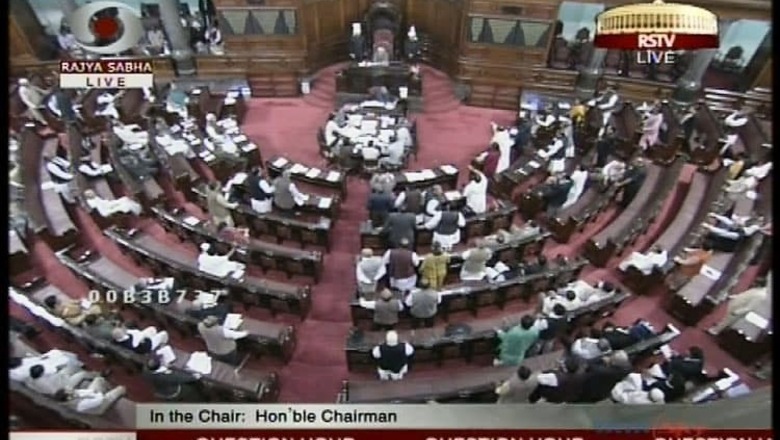
views
In its last ditch effort, the Central Government will give its final push to the Goods and Services Tax Bill in Rajya Sabha on Thursday. The entire session has been marred by adjournments and has been a complete washout so far.
While the Congress seems unrelenting in its stand, the government is pinning its hope on other opposition parties for the passage of the bill.
Amidst uproar by opposition parties, Finance Minister Arun Jaitley on Tuesday introduced the GST Bill in the Rajya Sabha but no discussions could not be held on the same due to the pandemonium in the House.
According to the Bill, Parliament and state legislatures will have concurrent powers to make laws on GST. The Bill also amends the Constitution to introduce the tax (GST).
The GST Council will recommend rates of tax, period of levy of additional tax, principles of supply, special provisions to certain states etc. The GST Council will consist of the Union Finance Minister, Union Minister of State for Revenue, and state Finance Ministers.
The Bill empowers the centre to impose an additional tax of up to 1%, on the inter-state supply of goods for two years or more. This tax will accrue to states from where the supply originates. Parliament may, by law, provide compensation to states for any loss of revenue from the introduction of GST, up to a five year period.
An ideal GST regime intends to create a harmonised system of taxation by subsuming all indirect taxes under one tax. It seeks to address challenges with the current indirect tax regime by broadening the tax base, eliminating cascading of taxes, increasing compliance, and reducing economic distortions caused by inter-state variations in taxes.
The provisions of this Bill do not fully conform to an ideal GST regime. Deferring the levy of GST on five petroleum products could lead to cascading of taxes. The Bill permits the centre to levy and collect GST in the course of interstate trade and commerce. Instead, some experts have recommended a modified bank model for inter-state transactions to ease tax compliance and administrative burden.
The idea behind GST is to subsume all existing central and state indirect taxes under one value added tax, which will be levied on all goods and services. No good or service is exempt, and there is no differentiation between a good or service, whether as an input or as a finished product. Under GST, tax paid on inputs is deducted from the tax payable on the output produced. This input credit set off operates through the manufacturing and distribution stage of production. The tax is collected only at the place of consumption. This design addresses cascading of taxes.













Comments
0 comment